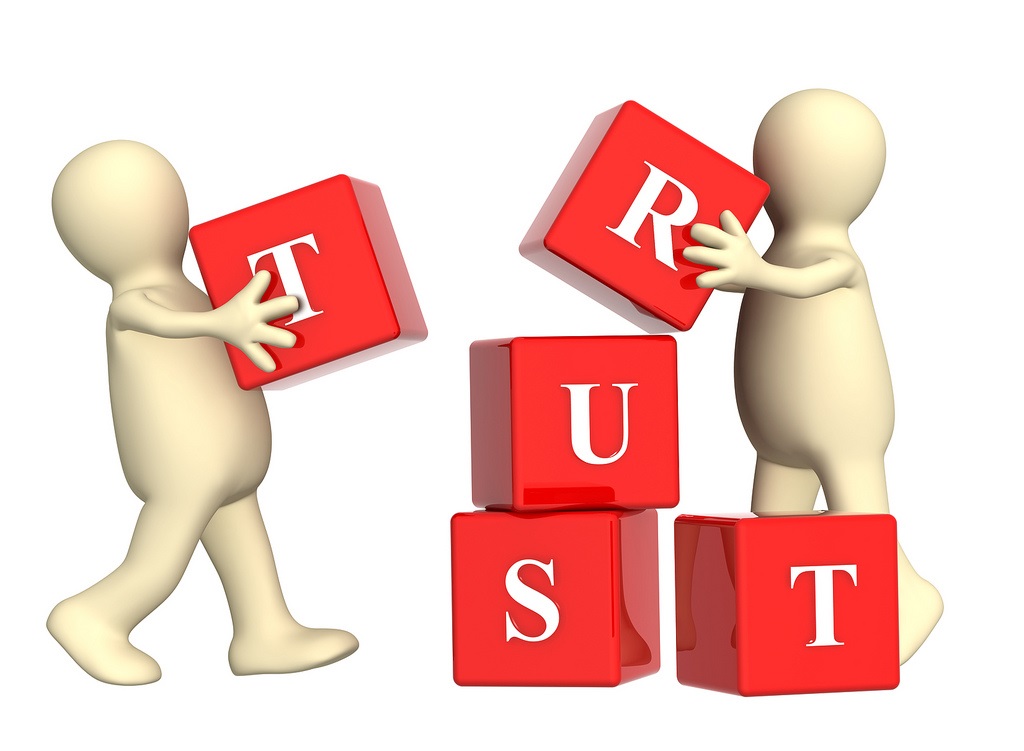
As I completed my series on Soft Skills, a commenter asked me about the place of Trust, since I had not listed it as a specific Soft Skill. I’m not sure about this. The question of Trust seems to be relevant or applicable in a number of different areas, and so as I did with Professionalism, I ask the question: “Is Trust a soft skill on its own, or an underlining feature or component of all the soft skills I have discussed in the series?”
If people don’t trust you, they are less likely to work with you, invest in you, or pursue shared goals. Evidence suggest that if you take the time to build trust with your colleagues or team members, everyone will thrive. Many of the soft skills I covered in my series help to build trust – effective communication, openness and honesty, a positive attitude and a strong work ethic. Demonstrating that you are trustworthy helps not only to build personal relationships, but also to create “buy in” for your initiatives and projects. The literature suggests that people who are deemed trustworthy by colleagues share some of the same characteristics:
- They are skilled at their jobs
- They are passionate about their work , and have a strong work ethic
- They communicate honestly and value transparency
- They have others’ best interests at heart
- They care about people and demonstrate this care
- They are self-aware
My own conclusion is that trust is a trait rather than a skill – that when you trust someone or create trust, it is an outcome of something else such as empathy, which helps build trust. In Search Inside Yourself (Harper One, 2012) Chade-Meng Tan stated that when we interact with empathy “we increase the likelihood that people feel seen, heard and understood”. Tan goes on to say that when we feel these things we tend to feel safer and therefore more likely to trust. In coaching we learn that the establishment of trust is the cornerstone of the coaching relationship, which is why confidentiality is so critical. By maintaining confidentiality we create a bond of trust between the parties. Lencioni in his work The Five Dysfunctions of a Team (Jossey-Bass, 2002) places the “Absence of Trust” on the bottom of his hierarchal pyramid, stating that this is the basis of dysfunction – everything starts here and the absence of trust is the basis for all the other dysfunctions.
In Credibility: How leaders gain and lose it (Jossey-Bass, 2011), Kouzes and Posner stated that “credibility is about how leaders earn the trust and confidence of their constituents” and that when asked in surveys how leaders build and sustain credibility, respondents’ most frequent answer was, “They do what they say they will do”. Trust, then, is tied to how we are perceived by others and by our actions: Do we walk the talk? Do we follow through on commitments and keep our promises?
I still don’t believe that trust is a specific Soft Skill but I’m open to dialogue on the subject. I do believe that trust is an outcome of how others perceive and interact with us. We either trust others or we don’t, based on how we perceive their actions.
John Whitehead, coaches individuals and organizations in becoming more effective by helping them improve their interpersonal communications, emotional intelligence and resiliency.
*******Are you wondering if having a Leadership/Personal Development Coach is right for you? Contact John for a complimentary, exploratory coaching session at john@johnkwhitehead.ca********
If you would like to get notifications for when I post, please go to my blog site and register. I promise I will not spam or use your email address for anything else. You can visit and register for my blog at https://johnkwhitehead.ca/blog-2/
